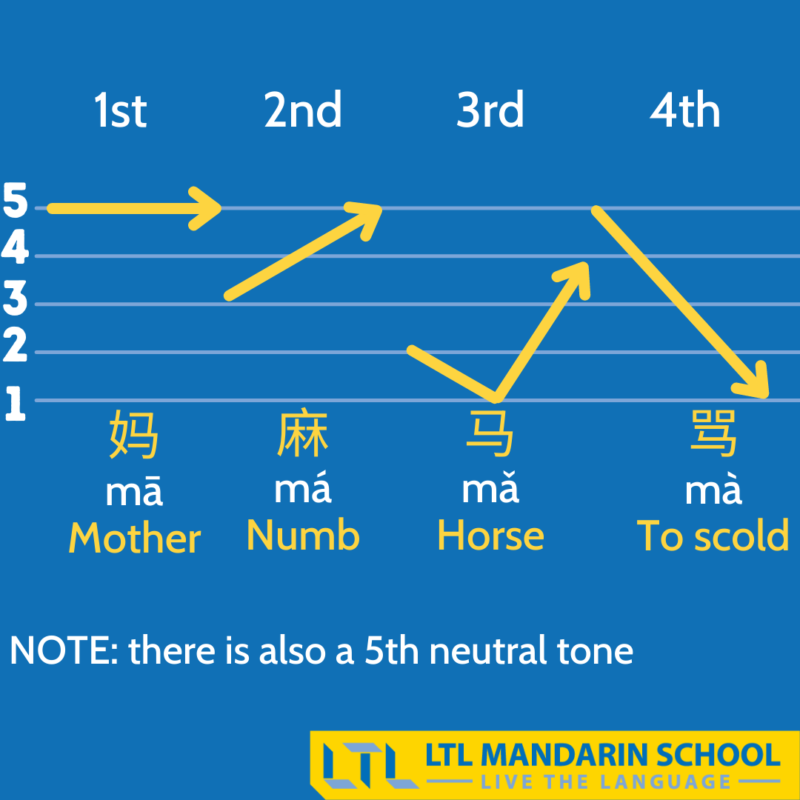Chinese Listening Practice // Surefire Tips & Tricks to Avoid Getting Lost in Translation
Today we’ll be delving into some Chinese listening practice and tell you exactly the steps you should be taking to improve your Chinese listening comprehension.

Learning Chinese is a long process that involves four main skills:
👉 Listening comprehension
👉 Reading comprehension
👉 Speaking ability
👉 Writing ability
Generally, mastery of all four skills is required to become proficient in Chinese.
That being said, some students may choose to prioritize their listening skills in order to achieve a more personal goal, like watching TV shows in Chinese or passing the HSK.
If you are interested in improving your listening skills, here is how to do it.
Chinese Listening Practice – Comprehensible Input
Chinese Listening Practice – Watch Videos
Chinese Listening Practice – Read
Chinese Listening Practice – Utilise Flashcards
Chinese Listening Practice – Stick To One Accent
Chinese Listening Practice – Enjoy It
Chinese Listening Practice – Listening Resources
Chinese Listening Practice – FAQ’s
Chinese Listening Practice || Comprehensible Input
Active listening is one of the key ways to improve your listening skills.
However, listening to a complex dialogue that is way out of your level will not help you improve very quickly.
Trying to conquer something that’s beyond your reach will ultimately lead to a lot of frustration and not a whole lot of progress.
You should be listening to materials that you can understand, even if you feel that they are below your current level.

It can be tempting to try to move up the ranks as quickly as possible, but it is very important to listen to audio that you can understand in its entirety over and over again.
If you’re studying Mandarin, chances are that properly identifying the tones is going to be one of the biggest obstacles in your way.
Listening to audio that is comprehensible to you is a great way to train your brain to recognize each of the tones quickly and accurately, thus allowing you to understand more complex conversations down the road.
TIME TO PRACTICE – Get listening to the tones with our friend Amy.
Finding Chinese Audio In Your Level
There are many ways to listen to comprehensible input.
Most Chinese textbooks will include audio for the main texts in each chapter, either via a CD or online through their website or WeChat.
Listening to the textbook audio is a great way to double-check that you’ve learned all the content in the chapter.
If you are taking classes with a tutor, either online or in-person, ask the tutor if you are allowed to record your session. You will then have plenty of audio to listen to that is tailored to your level of Chinese.
If you want to go the extra mile, you could use an audio editing tool to cut yourself out of the conversation. That way you can listen to your tutor without interruptions.
You can also use popular Chinese learning apps like DuChinese or The Chairman’s Bao and focus on listening to the texts before you read them.
Make sure that you listen to the audio once or twice before you read the text. If you find that you understood the audio completely, you can even skip reading the text.
Chinese Listening Practice || Watch Videos
Whether you’re a fan of C-dramas, YouTube, or Bilibili, we have good news for you: watching videos in your target language will improve your listening skills.
A study done by the University of California, San Diego shows that watching videos in your target language will improve your Chinese listening skills beyond what could be expected in the classroom.
Luckily, there are many ways for you to enjoy Chinese media online.
Check out our ultimate guide on Chinese streaming websites and grab a bag of popcorn to work on your Chinese listening comprehension.
For maximum effectiveness, make sure you are not using subtitles in your native language to push your Chinese listening practice to the max. Speaking of Max, take a look at his review of movie-tool Phrase Pump below!
Chinese Listening Practice || Read
As discussed above, listening to comprehensible input is one of the best ways to improve your listening comprehension skills. However, how do you improve your listening level to the point where you can listen to audio and comprehend it?
Surprisingly, reading can help you improve your Chinese listening comprehension.
Just as with listening to comprehensible input, you must make sure that you are reading materials that you can understand.
Ideally, this means that you should understand 98% of the words that you are reading.
Although this number might seem high, you can think of it this way: if you were reading at a 95% comprehension level, you would have to look up 1 of every 20 words. Spending this much time looking up words in the dictionary would be too time-consuming for most readers.
Try to find graded readers that you can read with ease and without having to look up too many words. You should aim for only one unfamiliar word per page at most.
Again, you might feel like reading this type of content is below your level, but the point is to read comprehensible input.

This will reinforce the sentence structures and vocabulary in your brain so that you can understand more easily when you are engaged in active listening.
If you’ve read a sentence structure many times, you will not spend as much time trying to decode what you just heard and will instead process the sentence automatically.
This is a key factor in developing automatic processing so that you no longer need to translate on the spot when you hear a sentence.
Your brain will process the sentence automatically and you can just focus on listening to the dialogue or conversation.

57 Basic Chinese Phrases 🗣 LTL’s Complete Guide to Chinese for Beginners
The Most Useful Basic Chinese Phrases You Have To Know. Download our basic Chinese phrases flashcards and learn the very basics for when you come to China.
Chinese Listening Practice || Utilise Flashcards
One of the major obstacles in Chinese listening practice is unfamiliar vocabulary.
It can be very frustrating to listen to a dialogue and understand everything in the conversation except for that one word.
Not being familiar with the subject, verb, or object of the sentence can throw you off and make you completely misunderstand the situation.
Working through flashcards every day can help you increase your vocabulary pool so that you are better equipped to deal with low-frequency words. We recommend using a spaced repetition software (SRS) like Hack Chinese to maximize your time spent working through flashcards.




Remember that consistency is key, so try spending a few minutes each day revising your Chinese flashcards!
Chinese Listening Practice || Stick To One Accent
Chinese is anything but a uniform language. First, you have the issue of all the dialects, or fāngyán (方言) but even within Mandarin, the regional accents can seem like dialects even to a native Mandarin speaker.
What some may pronounce like shi, others will pronounce like si. Words starting with zh may sound like z in certain regions. You get the gist, not every Mandarin speaker in China will use the same standard pronunciation.
The truth is, China is too large and too diverse a country for everyone to speak pǔtōnghuà (普通话) with the same accent.
Thus, at some point in your learning journey, you will want to listen to people from different parts of China to familiarize yourself with the regional accents.

However, if you’re a beginner or intermediate speaker, you should try to stick to standard Mandarin pronunciation. Most Chinese resources will stick to standard Mandarin, but watch out for regional accents if you’re watching videos on Youku or Bilibili.
Alternatively, if you’re a heritage speaker and are used to hearing your family speak with a regional accent, it might be a good idea to stick to that accent until your level is good enough.
Try to converse with your family as much as possible and ask them for any media recommendations. They will very likely know of local singers or local media that could help you practice your regional accent.

Provinces of China // The Complete Guide to China’s 34 Divisions
China’s big, we know that much, but how is it broken down into smaller parts? How many are there? Here’s our handy guide to all the provinces of China.
Chinese Listening Practice || Enjoy It
Whatever learning strategy you choose, make sure it is enjoyable! At LTL, we are firm believers that learning a language should be anything but boring, so pick the learning strategies that you like the most.
Maybe you don’t enjoy Chinese movies, but you do enjoy Chinese YouTubers. That is fine!
For those interested in going a step further, studying Chinese in China’s cities (Chengdu, Beijing, or Shanghai, etc.) can be a rewarding way to build listening skills naturally through daily life
As always, stick to what you like and you will be more likely to practice more often and for longer periods of time!
Chinese Listening Practice || Resources
So now that you’re well-prepared to improve your listening skills, it would help to have something to listen to!
TV Shows
Check out our Top 14 Chinese Language Show Recommendations
For Netflix users, here’s our Complete Guide to Chinese Shows on Netflix
Anime fans, take a look at our 10 Must-See Chinese Anime Series
Podcasts
Beginners, we’d recommend you try Coffee Break Chinese which is broken down into nice 15-20 minute episodes
For intermediate learners, check out our half-English half-Chinese podcast that deals with all things daily life 50五十
Advanced-level pros, take a look at Mandarin Pod for a more immersive experience
Movies
Check out our 10 Best Mandarin Movies for this year
If you’re tempted to try out a China-ran service, have a read of our Netflix vs iQiYi guide
If you’re keen to keep your 普通话 accent pure and not mixed up, here’s 5 of the Best Movies Based in Beijing!
Chinese Listening Practice || FAQ’s
Are there many different dialects in China?
Yes, many!
What some may pronounce like shi, others will pronounce like si. Words starting with zh may sound like z in certain regions. You get the gist, not every Mandarin speaker in China will use the same standard pronunciation.
The truth is, China is too large and too diverse a country for everyone to speak pǔtōnghuà (普通话) with the same accent.
Can I watch videos in Mandarin to practice my Chinese listening comprehension?
Absolutely yes.
Whether you’re a fan of C-dramas, YouTube, or Bilibili, we have good news for you: watching videos in your target language will improve your listening skills.
A study done by the University of California, San Diego shows that watching videos in your target language will improve your listening skills beyond what could be expected in the classroom.
What are some top tips for Chinese listening practice?
Some of the best ways to improve your Chinese listening comprehension include:
Comprehensible Input
Watch Videos
Read
Utilise Flashcards
Stick To One Accent
How can I practice listening to different Chinese accents and dialects?
You can explore podcasts or videos from various Chinese-speaking regions, such as Beijing, Shanghai, Taiwan, or Hong Kong. Try to listen out for the differences in slang and vocab too!
How can I practice listening and responding to native speakers?
Try out our 24/7 online Flexi Classes platform, where you can take classes with our native speaker teachers!
Want more from LTL?
If you wish to hear more from LTL Mandarin School why not join our mailing list? We give plenty of handy information on learning Chinese, useful apps to learn the language and everything going on at our LTL schools!
Sign up below and become part of our ever-growing community!
BONUS || Want to study Chinese with us in Chengdu? Why not check out our group courses or individual Chinese classes.


 Hi, my name is Sabatino. I am from Italy and I am a Student Advisor at LTL. Fancy coming to study with us in China?
Hi, my name is Sabatino. I am from Italy and I am a Student Advisor at LTL. Fancy coming to study with us in China? Hi, my name is Mojca. I am from Slovenia in Europe and I work as a student advisor at our Chengdu school.
Hi, my name is Mojca. I am from Slovenia in Europe and I work as a student advisor at our Chengdu school.







